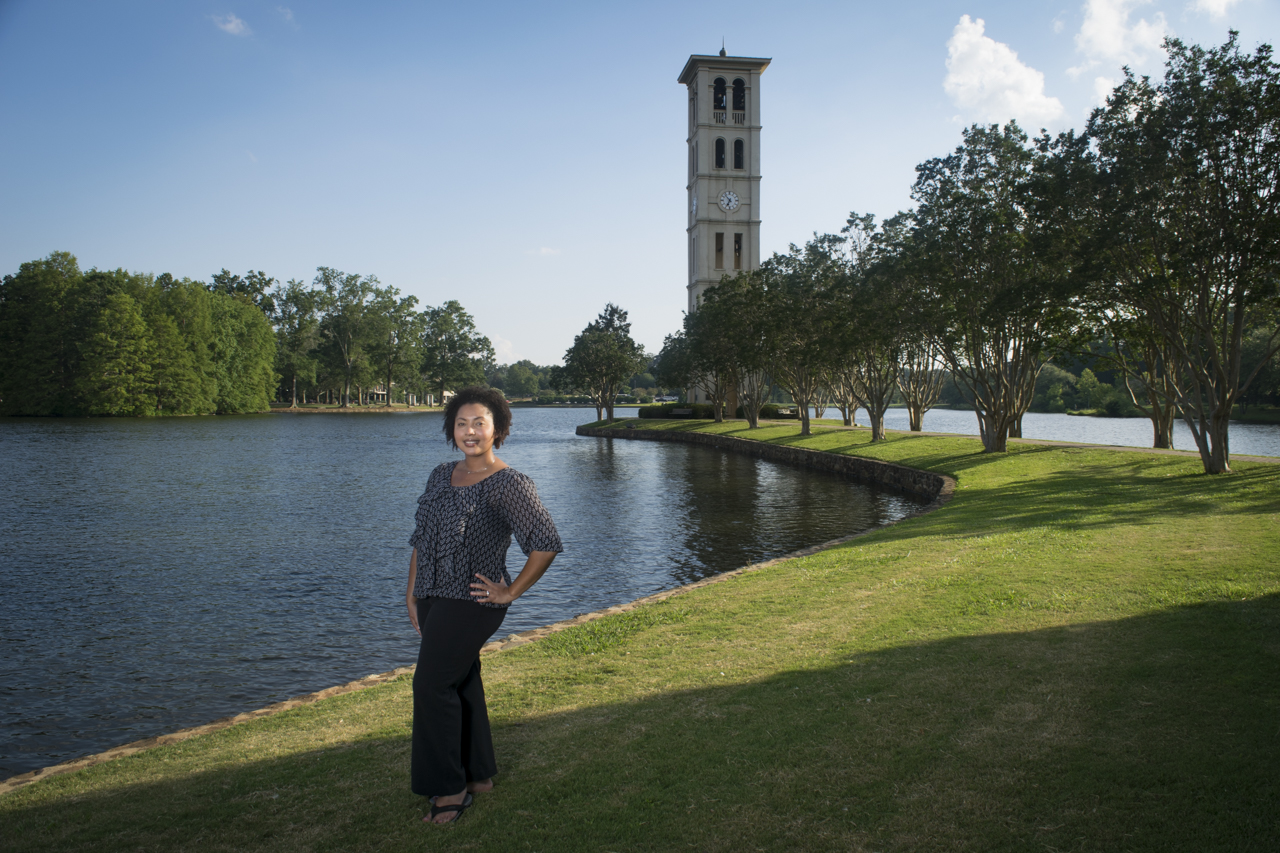The Courage to Be Yourself –
There are many that have bravely faced the internal and external struggles of bringing the face that they present to the world in line with the who they really are inside, despite many obstacles. Ms. Rosie Banks, a college instructor who also runs a non-profit dedicated to helping those reentering society after incarceration, recommends a new autobiography by Rachel Dolezal, which dwells on this theme. We met at Ms. Bank’s alma mater, Furman University in Greenville, SC to discuss the book and its implications. The following are her thoughts about this inspiring book and its controversial author.How did you first encounter Rachel Dolezal’s work?
I first encountered Rachel Dolezal aka Nkechi Diallo in 2015 when her story hit mainstream media. Rachel Dolezal is a social justice activist and artist who was born biologically white, but self identifies has a Black woman. Immediately, I was very taken with her story. I found her affinity for Black culture, politics, art, and history to be sincere. She stood out to me as an individual who had chosen to embrace her most authentic self even when it went against all societal constructs of race that America has created.

In what ways did her work speak to you or affect your thinking?
Being a woman of multiple ethnicities, I found it refreshing to see a non-minority embrace a Black aesthetic in beauty such as she has done over the past 10 years. Rachel Dolezal’s story further perpetuates my belief that race is simply a social construct. It does not exist. This has been corroborated by numerous genealogist. Unfortunately, many Americans believe it is real. As in Ms. Dolezal’s case, members within our society are willing to go so far has to destroy a person’s reputation and career. This story confirms that as a society Americans have a long way to go in healing our perceived color divide.
Has the meaning of her work changed or evolved for you over time and life experience?
This remains to be seen. Ms. Dolezal’s story has only been made public within the last 2 years. As of 2017, she is still self-identifying as a Black woman. I still support her and I hope that she will continue to stand in her truth.
How has the work influenced your own work?
When I teach sociology or psychology courses for local institutions I use Ms. Dolezal’s story to illustrate “race” in America. It has been a topic of heated debates that has pushed my students past their comfort levels. In some instances, it inspired new thoughts about race and race relations within our communities here in the Upstate. Ms. Dolezal’s work has been a positive vessel for constructive criticism of racial paradigms in higher education learning environments.
Why do you feel it is important for women to examine the work of Rachel Dolezal?
Women should examine the work of Rachel Dolezal because she has enough gumption to be herself. It is my belief that women are encouraged to fit into ideological images created by a patriarchal society here in America. Women are expected to perform within specific gender roles that has restricted our essence since the founding of this country. Now, we are being introduced to someone that is setting another standard. Ms. Dolezal’s story challenges everyone to ask themselves “Who am I, really?” Most women will give you a constructive answer created by what society (family) has told them they are. As a woman of color, it is often portrayed in the media that we are not pretty. Here, you have a woman that society deems racially privileged choosing to be Black. So, to mainstream America (Black and White members of society) it is hard to fathom why she would choose to be a part of a group of people that are most notably marginalized. I believe Ms. Dolezal’s self-image, as a woman and one of color, challenges the status quo of racial pejoratives in America. This can be applied to gender pejoratives as well as she is a highly accomplished single mother of three Black young youth.
To learn more about Rachel’s story and read an excerpt from her book, click here.